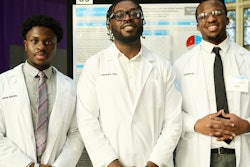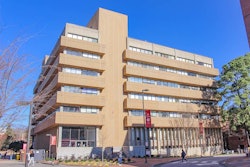DULUTH, Minn.
Summer programs that encourage American Indians to enter health professions are in full swing now, but they may come to an end after Sept. 1. That’s when funding ends for the Center for American Indian and Minority Health, one of three centers in U.S. medical schools that promotes health professions for American Indians. The loss in funding will cut the center’s budget by 83 percent, from $1.3 million to $225,000.
The programs helped the University of Minnesota graduate more than 100 American Indian doctors since 1990, more than all but one other American university.
Dr. Ed Haller, a now retired faculty member in Duluth who started recruiting American Indians into the medical school, calls the federal budget cut “unconscionable.” Nationwide, funding was cut for all centers of minority health, except those at historically Black colleges.
“The people who have been here have been role models and an inspiration to students,” Haller says. “I remember one student who said he had been told that he should be a truck driver. That sort of thing just brings tears to your eyes.”
Medical School Dean Deborah Powell says university officials hope to redirect enough money to restore at least half of the cut funds. The school is lobbying Minnesota’s congressional delegation to try to get funding restored next year.
Powell says the program is the reason that 17 of the 200 students who start medical school on the Twin Cities and Duluth campuses this fall are American Indian. Those students, from across the country, are drawn by the opportunity to work on reservations, study with American Indian doctors and take classes dealing with issues such as medicine and traditional healing practices.
“To provide the best health care to patients, be they Caucasian or Somali or Hmong or American Indian, one has to understand their culture and beliefs,” Powell says. “We have to have students who come from those cultures.”
Otis Bitsuie, a 21-year-old Navajo who came from the University of Utah for the summer program, says he will probably pursue a medical profession as a result of the summer program he’s attending. He said it’s important for American Indians to have American Indian doctors.
“A lot of natives don’t have the trust there [with doctors from outside their culture],” he says. “That can make a very big difference. It can ease apprehension if they see a native.”
— Associated Press
|
Reader comments on this story: |
|
There are currently no reader comments on this story. |
© Copyright 2005 by DiverseEducation.com


















